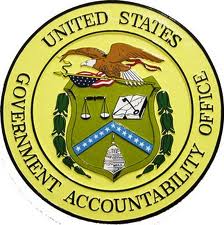Government watchdog report finds FBI, Capitol Police identified but didn't share "credible threats" before Jan. 6.
Washington DC, March 14 (DP.net).– A court hearing was held in the U.S. Court of Appeals for the DC Circuit on Friday, March 10, 2023, in the Freedom of Information Act (FOIA) lawsuit against the U.S. Department of Justice for records of communication between the Federal Bureau of Investigation (FBI) and several financial institutions about the reported transfer of financial transactions made by people in DC, Maryland and Virginia on January 5 and January 6, 2021.
The appeal was heard by a three-judge panel: Circuit Judge Wilkins, and Senior Circuit Judges Rogers and Tatel. An audio of this morning’s hearing can be found here: https://www.youtube.com/live/Hfa6qg4SEyA.
 Judicial Watch filed its appeal in November 2022, challenging a U.S. District Court for the District of Columbia decision allowing the FBI to withhold records of communication between the Federal Bureau of Investigation (FBI) and several financial institutions about the reported transfer of the financial transaction records.
Judicial Watch filed its appeal in November 2022, challenging a U.S. District Court for the District of Columbia decision allowing the FBI to withhold records of communication between the Federal Bureau of Investigation (FBI) and several financial institutions about the reported transfer of the financial transaction records.
Judicial Watch asked for:
All records of communication between the FBI and any financial institution, including but not limited to Bank of America, Citibank, Chase Manhattan Bank, Discover, and/or American Express, in which the FBI sought transaction data for those financial institutions’ debit and credit card account holders who made purchases in Washington, DC, Maryland and/or Virginia on January 5, 2021, and/or January 6, 2021.
In its appellate brief, Judicial Watch argued:
This appeal arises from what appears to be an unprecedented abuse of the financial privacy of thousands of Americans. Substantial and compelling evidence demonstrates that the FBI sought and received records from financial institutions of anyone who used a credit card or engaged in other transactions in the Washington, D.C. area on January 5 or 6, 2021. This would include many thousands of persons living in the Washington, DC area, including possibly members of this Court.
In its appeal, Judicial Watch pointed out that the lower court was mistaken when it upheld the FBI’s Glomar response (neither confirming nor denying the existence of records) because the FBI previously acknowledged the existence of the records in multiple ways. For instance, court records filed in support of a criminal case include the FBI’s statement of facts that provides the defendant’s address, which was obtained through “his Bank of America account and recent Expedia transactions.”
Judicial Watch cited four additional cases where the FBI describes in publicly available court records its use of private financial records in the January 6 investigation. 
A US Government Accountability Office (GAO) report published by CBS News informs that Federal agencies responsible for protecting the U.S. Capitol did not "fully process" or share critical information — including about militia groups arming themselves ahead of the Jan. 6, 2021, insurrection — a failure that stymied the response that day, according to a new 122-page report by the nonpartisan Government Accountability Office.
The FBI and the U.S. Capitol Police had seen "threats that were true or credible" days ahead of the assault on the Capitol building, the report said. But much as with the Sept. 11, 2001, attacks, a failure by multiple agencies to share information and connect dots left those securing the Capitol unprepared for the onslaught.
"Some agencies did not fully process information or share it, preventing critical information from reaching key federal entities responsible for securing the National Capital Region against threats," the report said.
Comments powered by CComment